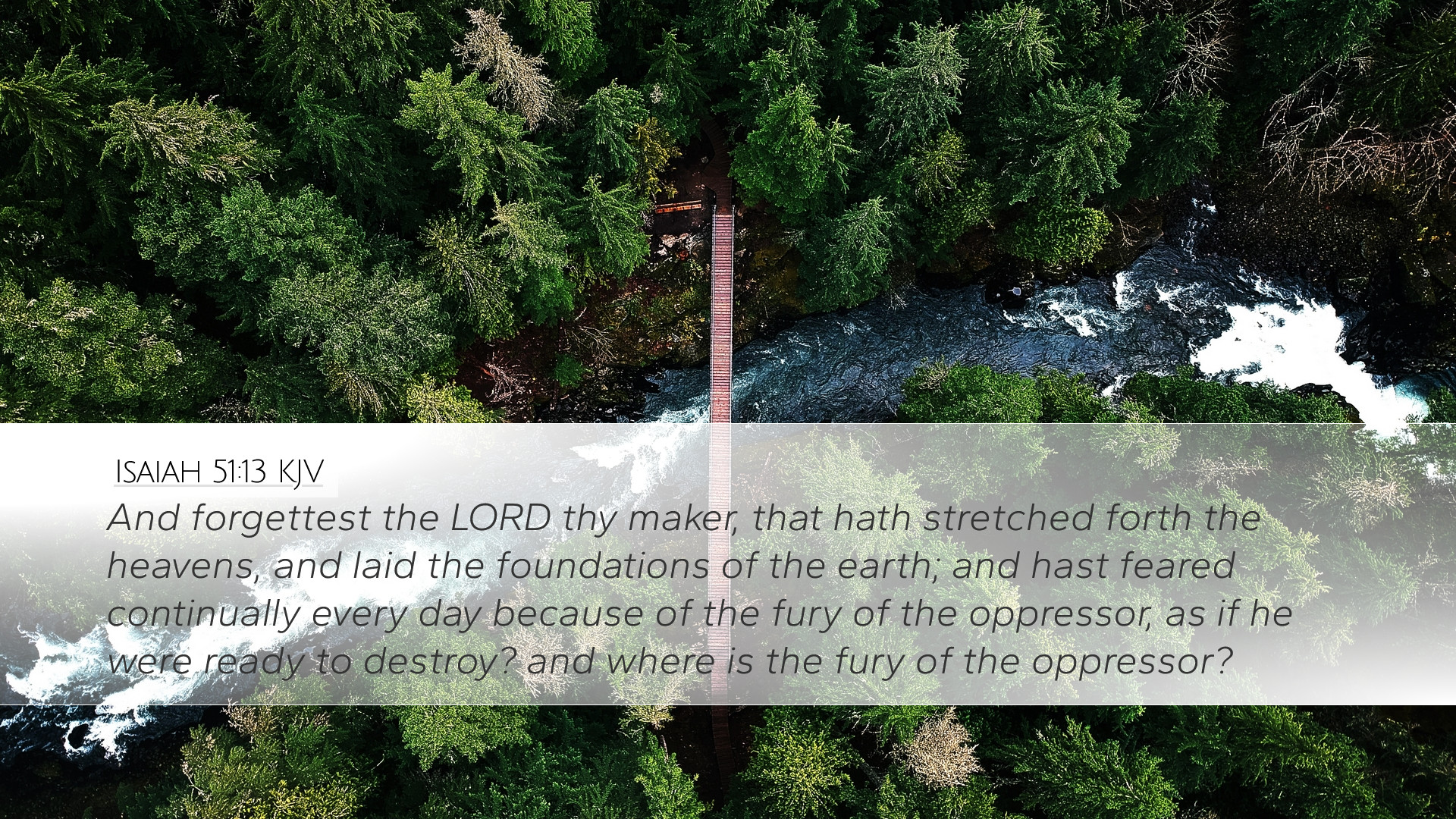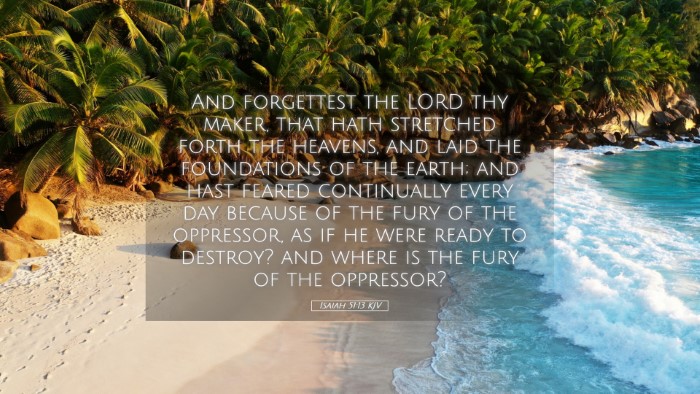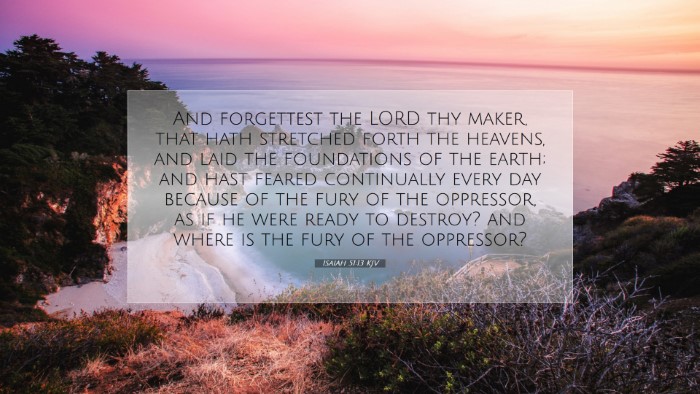Commentary on Isaiah 51:13
Verse: "And forgettest the Lord thy maker, that hath stretched forth the heavens, and laid the foundations of the earth; and hast feared continually every day because of the fury of the oppressor, as if he were ready to destroy. And where is the fury of the oppressor?" (Isaiah 51:13)
Introduction
Isaiah 51:13 serves as a poignant reminder of the need for God's people to maintain their faith in Him, especially in times of distress and oppression. This verse speaks to the Israelites' tendency to forget their Creator while succumbing to fear of their oppressors. Drawing from the insights of public domain commentaries, we will delve deeper into its theological implications, historical context, and practical applications.
Theological Insights
-
God as Creator
Matthew Henry emphasizes that the "Lord thy maker" is a reference to God's sovereignty and power in creation. He calls attention to the vastness of God's creation—"stretched forth the heavens" and "laid the foundations of the earth." The act of creation underscores that God is not only a powerful being but also intimately involved in the affairs of the world.
-
The Nature of Forgetfulness
Albert Barnes points out that to "forget" the Lord signifies a conscious neglect of His power and providence. In the midst of trials, the Israelites allowed their fear of immediate circumstances (the oppressor) to overshadow their faith in God. This forgetfulness leads to a spiritual amnesia which is detrimental to their faith.
-
The Reality of Oppression
Adam Clarke discusses the emotional and psychological aspects of oppression. The "fury of the oppressor" symbolizes the daily struggles and fears faced by the Israelites. Their focus on this fear illustrates a lack of remembrance of God’s past deliverances and promises, impacting their trust in Him.
Historical Context
The context of Isaiah 51 is crucial for understanding this verse. The Israelites were experiencing oppression, possibly at the hands of Babylon. The prophet Isaiah addresses a people who had been led astray, both in heart and spirit, by their situation.
Matthew Henry notes that this chapter aims to comfort the Israelites, reminding them that their plight is not beyond the reach of God’s ability to deliver. As they faced national and personal crises, God's message remains that He is still their maker and sovereign protector.
Practical Applications
-
Trusting in God's Sovereignty
Believers today must recognize that challenges will arise, but they should not let these alter their view of God's power and providence. Albert Barnes encourages congregants to rest assured in the truth that God is above all worldly forces and that His authority surpasses any human oppression.
-
Combating Spiritual Forgetfulness
Adam Clarke suggests that one way to combat forgetfulness of God is through constant remembrance of His faithfulness—reading Scripture, praying, and sharing testimonies of His goodness.
-
Focusing on God's Promises
Isaiah challenges us to redirect our focus from our fears to the promises of God. Matthew Henry asserts that believers must cling to God’s word, which assures that He will not abandon them in their time of need. This is echoed in the sermons and lessons drawn from this scripture.
Conclusion
Isaiah 51:13 carries a profound message that transcends time, inviting God's people to remember their Creator amidst trials. By reflecting on the insights provided by various commentators, we are reminded that our response to challenges should not be dominated by fear, but rather reinforced by faith in God’s omnipotence and past faithfulness. May this understanding empower pastors, theologians, and students to lead lives anchored in the truth of God's enduring promises.


